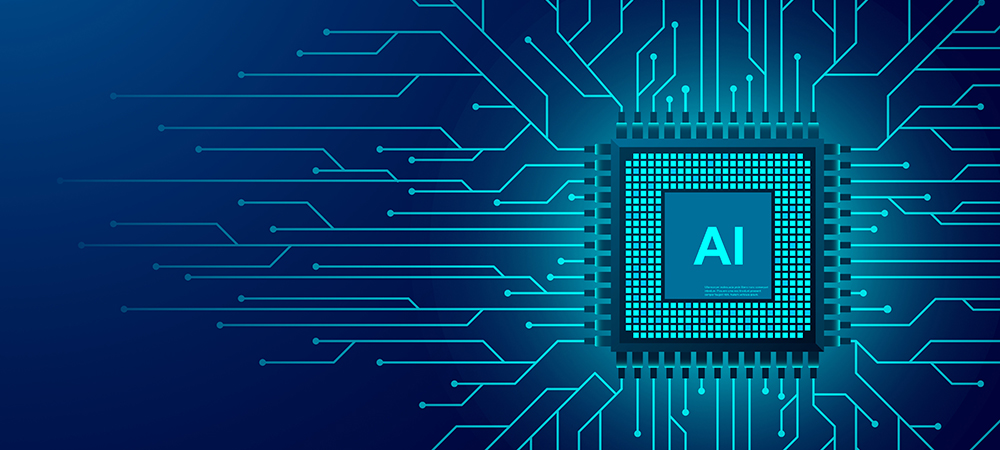Brad Gyger, Global CRO, DataStax, on revolutionising developer passion and performance in Southeast Asia.

According to IDC, AI spending in the Asia/Pacific region is set to reach $49.2 billion by 2026.
Like anyone else, developers, too, want to contribute in ways that meaningfully impact those around them.
In the midst of workplace disruption and talent shortages, it is poignant that human-centric work will be crucial for businesses looking towards AI to increase market share, profitability and overall competitiveness.
Clearly, prioritising developer experience is imperative for business leaders – failing to do so could see their developers flock to competitors.
Based on a recent IDC report titled Enterprise Automation to Mitigate the Digital Skills Shortage, it has been revealed that a significant percentage, ranging from 60% to 80% of enterprises in the APAC sector face substantial challenges in hiring for various IT positions, including, developers and data professionals.
This shortage of skills has resulted in several significant repercussions, including heightened workloads for existing staff, heightened security vulnerabilities and decreased levels of customer satisfaction.
Brad Gyger, global CRO, DataStax spoke to Intelligent CIO about how:
- AI app opportunities influence career choices and job satisfaction among developers in Asia/SEA
- How AI and ML adoption in Asia/SEA enhances developer innovation and job satisfaction
- How AI empowers developers to build resilient careers and helps CIOs create cost-effective AI apps
- The positive impact of AI tools on developer productivity and job satisfaction in Asia/SEA.
1. How do AI app opportunities influence career choices and job satisfaction among developers in Asia/SEA?
In our State of the Data Race 2022 report, we found that developers who describe themselves as early adopters and knowledge experts of new tools and technologies are more likely to consider joining organizations that focus on building Artificial Intelligence (AI) and Machine Learning (ML) applications.
For these developers, there are several roles they can apply to become part of the AI/ML building process. There are many new jobs being created to support new enterprise AI infrastructure. In particular, organizations need trainers to build technologies that power AI features. These include large language models (LLMs) for generative AI platforms and server infrastructure to store training data. AI sustainers are just as crucial in ensuring AI apps can produce the desired result by maintaining data quality and optimizing user prompts. Through these new careers, developers can get excited about delivering beneficial apps that can benefit users.
2. How do AI and ML adoption in Asia/SEA enhance developer innovation and job satisfaction?
On top of boosting competitiveness, AI technologies can also empower human-centric work that allows developers to brainstorm new ideas and deliver better output. For example, they can request that generative AI tools deliver coding suggestions to help them get started quickly. Besides that, developers can improve upon existing code by feeding it into generative AI platforms to identify potential gaps that can be improved upon.
When tackling complex projects, developers can also turn to generative AI to grasp how to utilize unfamiliar programming languages and frameworks while also comparing codes from different archives.
This can boost developer productivity and therefore improve job satisfaction.
However, to leverage these benefits, organizations need to prioritize developer experience. This starts by integrating applications and data sources to allow them to build apps in the language and API of their choice. Organizations who are successful in delivering a positive employee experience will enhance talent retention and Drive Digital Transformation initiatives.
3. How does AI empower developers to build resilient careers and help CIOs create cost-effective AI apps?
Developers see AI as a means of excelling in their careers, with three-quarters of developers reporting that this improves their prospects of attaining the skills relevant to market demands. This also underscores that developers see AI as a means to contribute meaningfully to their organizations through high-quality apps and impactful innovations.
CIOs play a crucial role in this regard, as they are responsible for providing clear direction and effective leadership over Digital Transformation strategies. Therefore, CIOs can Drive successful AI implementation by creating an internal culture that shows an understanding of the challenges developers face today – which, again, highlights the need to take stock of what developers are saying, thinking, and feeling on the job. This can be supported by implementing metrics that gauge developer experience as a key measurement of Digital Transformation success. CIOs can further empower developers by providing them with world-class tools – such as a NoSQL database with proven high performance, linear scalability and zero downtime across on-premises, hybrid, and multi-cloud environments – to make their work lives easier.
4. What are the positive impacts of AI tools on developer productivity and job satisfaction in Asia/SEA?
As previously mentioned, AI can provide code suggestions that make it easy for developers to deliver new services quickly and seamlessly. With this technology in their arsenal, employees will be better equipped to take on projects, making them more committed to meeting their objectives. Case in point, of the 2,000 developers using GitHub Copilot, 88% stated that the platform increased their productivity and 60% said it made their jobs more fulfilling.
Also, AI can help developers automate various tasks, including detecting bugs, rewriting SQL queries to enhance app performance, and adjusting chatbot responses. Not only will this accelerate developers’ performances, but it can also redirect them to focus on critical operations, allowing them to realize their true value and increase job fulfillment.


